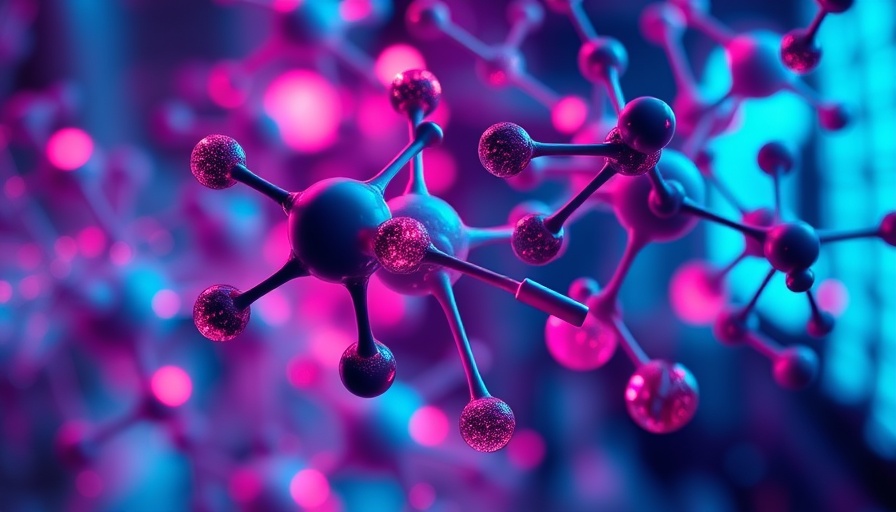
Unlocking Data with Molecules: The Future of Digital Security
Imagine logging into your computer using a secret message stored not on a typical USB drive or hard disk, but embedded in a synthetic molecule! This revolutionary concept is not just a flight of fancy; researchers from the University of Texas at Austin have successfully encoded messages in molecules, specifically creating a polymer that can unlock computers using a unique password. This advancement signals a major shift in how we understand data storage and security.
The Age of Molecular Data Storage
Traditional storage solutions like hard drives and flash drives present significant limitations—high maintenance costs, energy demands, and short lifespans. As digital data continues to skyrocket, alternative storage options have become essential. Molecules, particularly DNA and synthetic polymers, emerge as promising candidates due to their ability to store vast amounts of data without a power source.
According to Praveen Pasupathy, the study's corresponding author, “Molecules can store information for very long periods without needing power,” which presents a compelling advantage in the quest for sustainable data storage. This potential is further underscored by the fact that molecular data can theoretically last indefinitely, similar to the resilient nature of DNA over millennia.
Decoding Molecular Messages: A New Approach
Accessing molecular data has traditionally involved expensive technologies like mass spectrometers, which are not feasible for everyday users. The innovative method developed by the researchers uses electrochemical properties of synthetic molecules, simplifying the decoding process to potentially allow readings via more economical devices.
By creating a 'molecular alphabet' with four different building blocks, or monomers, the research team established a framework capable of generating 256 unique characters. This allowed them to encode an 11-character password into a polymer, decoding it through the unique electrochemical signals produced as the polymer is gradually broken down one monomer at a time. The result is a safer, more efficient way to store sensitive data.
What This Means for Digital Security
For those aged 25 and over, particularly individuals interested in tech advancements and lifestyle changes, understanding the implications of this research could shape how we view data security. In a world where data breaches are a daily risk, the potential of encoding information in synthetic molecules could lead to a more secure paradigm of data access.
Moreover, the concept of using everyday materials as data storage elements offers intriguing opportunities for urban tech – especially in cities like Dallas, where a burgeoning lifestyle tied to innovation and technology thrives. As Dallas becomes a hub for tech enthusiasts and young professionals, advancements such as molecular data storage can transform how we interact with digital devices daily.
Pros and Cons of Living in a High-Tech World
While the rapid development of technology is exciting, it also presents challenges. For instance, the cost of living in Dallas has already been significantly impacted by tech growth. From smart homes to advanced security systems based on molecular storage, the tech boom influences everything from housing prices to lifestyle amenities. Understanding these nuances is critical for those considering relocating or investing in the Dallas area, where lifestyle management clinics and tech-oriented communities are on the rise.
Next Steps: Should We Embrace Molecular Data?
Ultimately, embracing molecular data storage could revolutionize both personal and professional spheres. Just as the invention of the paper revolutionized literature, so too could molecular encoding redefine the digital world. With the potential to streamline the way we safeguard our information, the question now becomes: How quickly can we adapt to utilize these advancements wisely?
As we continue to build our digital infrastructures, innovations like these encourage us to think critically about our technology choices and the potential costs—both financial and ethical. Thus, keeping informed about advancements in molecular data storage isn't just beneficial; it’s essential.
If you want to stay ahead in the high-tech lifestyle narrative, explore more about the world of molecular storage and discover how it can impact your life in Dallas.
 Add Element
Add Element  Add Row
Add Row 



 Add Row
Add Row  Add
Add 


Write A Comment